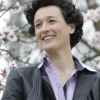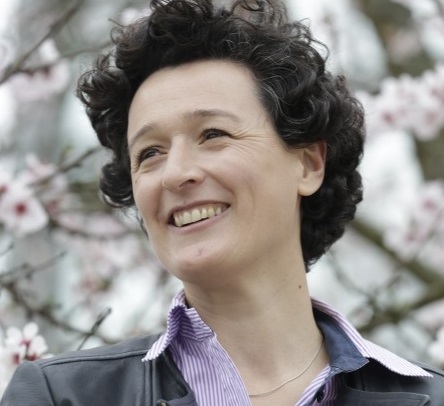
Martha managed the CLEW Journalism Network until February 2020. She developed network strategies and activities for energy reporters across the globe and helped launch the network platform in 2018. Prior to that, she was a correspondent at Index on Censorship, and also worked as policy researcher at a non-profit start-up.

Claire Stam is CLEW ambassador for France. As a journalist, she works at the Brussels-based Euractiv, and as such, Claire is also able to advise about the EU-level. She covers climate related issues linked to energy and agriculture as well as German and French energy and environmental politics. She previously worked for French press agency AEF Info where she was also in charge of climate, i.e. international climate negotiations, and environment.
Three questions to Claire Stam, CLEW ambassador for France
In France the debate is raging on the future of nuclear power. The accumulated delays prove the supporters of renewable energy right, for whom the atom is not only dangerous but also expensive. "We must stop the costs", the environmentalist camp proclaims.
After years of debate, the French group EDF has finally announced the shutdown of the oldest French nuclear power plant by 2020, the Fessenheim nuclear power plant in the Haut-Rhin region. Meanwhile, the EPR, the new generation reactors that are supposed to take over from the old models, are accumulating delays. The Flamanville EPR in Normandy may not start at best until 2022, 10 years after the date initially planned!
Flamanville and Hinkley Point are two nightmarish projects for which EDF is the prime contractor. They were to showcase French nuclear know-how, both in terms of technology and safety, eight years after the Fukishima disaster.
Instead, trouble is building up.
At the same time, the deployment of renewable energy sources is dragging on. France plans to use 23 percent renewable energy in its electricity mix by 2030; in 2018, it represents only 16.5 percent, an estimated 20 percent below what should have been done to be aligned with the 2030 target. France is especially lagging behind in offshore wind energy and photovoltaic and thermal solar energy.
I see my role as an enabler or facilitator between journalists from different countries and different continents, helping them to spot the news that will make the difference. For example, why a national issue such as the construction of Flamanville in France also has a strong European dimension to it.
I suggest that journalists based in one of the EU’s member states always include the European angle as decisions coming from Brussels, be it from the European Commission, the European Parliament and/or the European Council, as they have far-reaching consequences. This is still being overlooked or remains understated by national media, especially in France.
If you are an international journalist doing a story that involves research on energy transition and climate policy in France, you can reach out to Claire Stam as a first contact point. Beyond that, our other CLEW Journalism Network members in France and the wider region might be able to help you out, or be interested to collaborate on an energy transition story with you.
If you are a France-based journalist with an idea for a project on-the-ground, Claire is there to take your suggestion to us at CLEW.
Should you be looking for expertise in other countries – go and have a look at the CLEW Journalism Network map!

